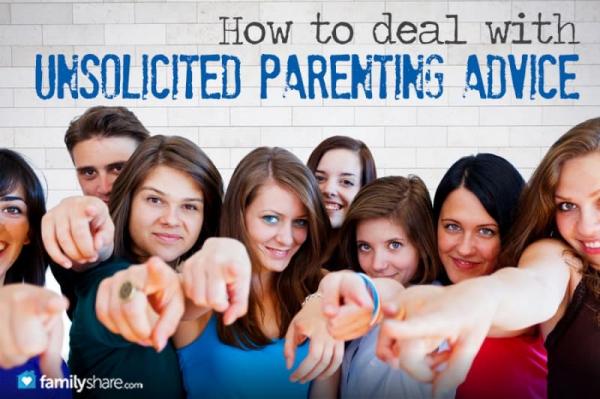
I was in the checkout line with my son when the person in front of me noticed the package of pacifiers I was about to buy. He looked at my son - who was about 18 months at the time - and said. "You don't need those, do you? You're a big boy."
My face turned red and my blood boiled. The pacifiers were, in fact, for my son. He was a hot-tempered little boy with screams that could blow out an ear drum. He also wasn't a very good traveler and the binky offered a tired mom a bit of silence and relief in between errands. But mostly, his soother was his comfort since birth. Both he and I weren't quite ready for the weaning process, but I knew in time we would be. Instead of explaining all of that to this person who suddenly seemed to be the expert of pacifier practices, I simply said something like, "Yes, he needs it. And so do I."
Whether it's the thoughtless remark of a stranger or your own family member putting in their two-cents on the proper diet for your daughter, dealing with any type of unsolicited advice can be frustrating and sometimes hurtful. But it doesn't have to be.
In regards to being offended, David A. Bednar has said, "When we believe or say we have been offended, we usually mean we feel insulted, mistreated, snubbed, or disrespected. And certainly clumsy, embarrassing, unprincipled, and mean-spirited things do occur in our interactions with other people that would allow us to take offense. However, it ultimately is impossible for another person to offend you or to offend me. Indeed, believing that another person offended us is fundamentally false. To be offended is a choice we make; it is not a condition inflicted or imposed upon us by someone or something else."�
Thus, I would like to share a few simple ways on how we can graciously tolerate the widespread opinions of others and still feel confident with our own parenting styles.
Think of it as help, not a personal jab
When someone offers some tips on potty-training or how to handle your strong-willed child, look at it as a friend trying to help a friend, not an implication that your parenting isn't up to snuff. Most of the time, people are just saying, "Hey, I've been there. This is what worked for me and hopefully it can help you, too."
If it gets personal, be kind yet honest in your response
My first child was a demanding baby. Everything had to be just so for him to be content. Mix his fussy personality with me being a new mommy and you can be sure I became the target for lots of unsolicited advice. Much of it was helpful, some hurtful. When confronted with someone who deemed himself as the expert of my child, I learned that the best response was usually something like, "Thank you, but I've found that ___ actually works for me and my child."
Being firm yet polite will send the message that while you are not opposed to hearing the opinions of others, you are the parent and have the last say in how you should rear your child.
Keep things in perspective
In the moment, a remark about your son's hyperactive nature can feel like a dagger to the heart. Try not harp on it or hold a grudge. Take a deep breath, divert the conversation, ignore the comment or make a mental note to avoid interaction with that particular person in the future. If this is a family member or someone you know you will cross paths with again and again, refer to the second tip and move on. Getting angry or severing relationships is not worth your energy or time.
In the joys and challenges of child rearing, you will have many who will be overly critical of your parenting style. You will also interact with many who are just offering a little friendly guidance. Be assertive, yet kind when speaking to others. Also try to keep things in perspective. Remind yourself you are doing the best you know how - and that is what truly matters.

